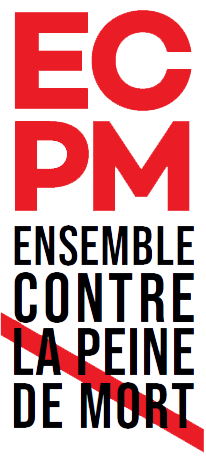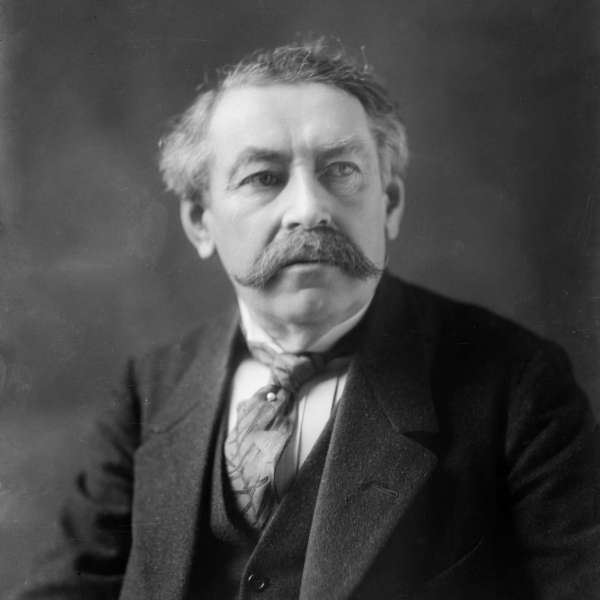16
ARISTIDE BRIAND
FRANCE
Dessin de Marcel Baschet (1862-1941)
Paris, Petit Palais
© Paris Musées
1862 – 1932
Homme politique, ancien ministre de la Justice
RESSOURCES :
-
Discours pour l’abolition de la peine de mort
-
Aristide Briand « Pèlerin de la Paix »
-
Aristide Briand, prophète ou bateleur ?
-
Quiz
-
Jeu du positionnement
« Moralisatrice ? […] La peine de mort l’est si peu que ceux qui en demandent le maintien sont d’accord pour qu’elle soit appliquée dans l’obscurité. De même que le meurtre privé se cache par crainte, vous demandez que le meurtre social se cache par honte. »
Aristide Briand
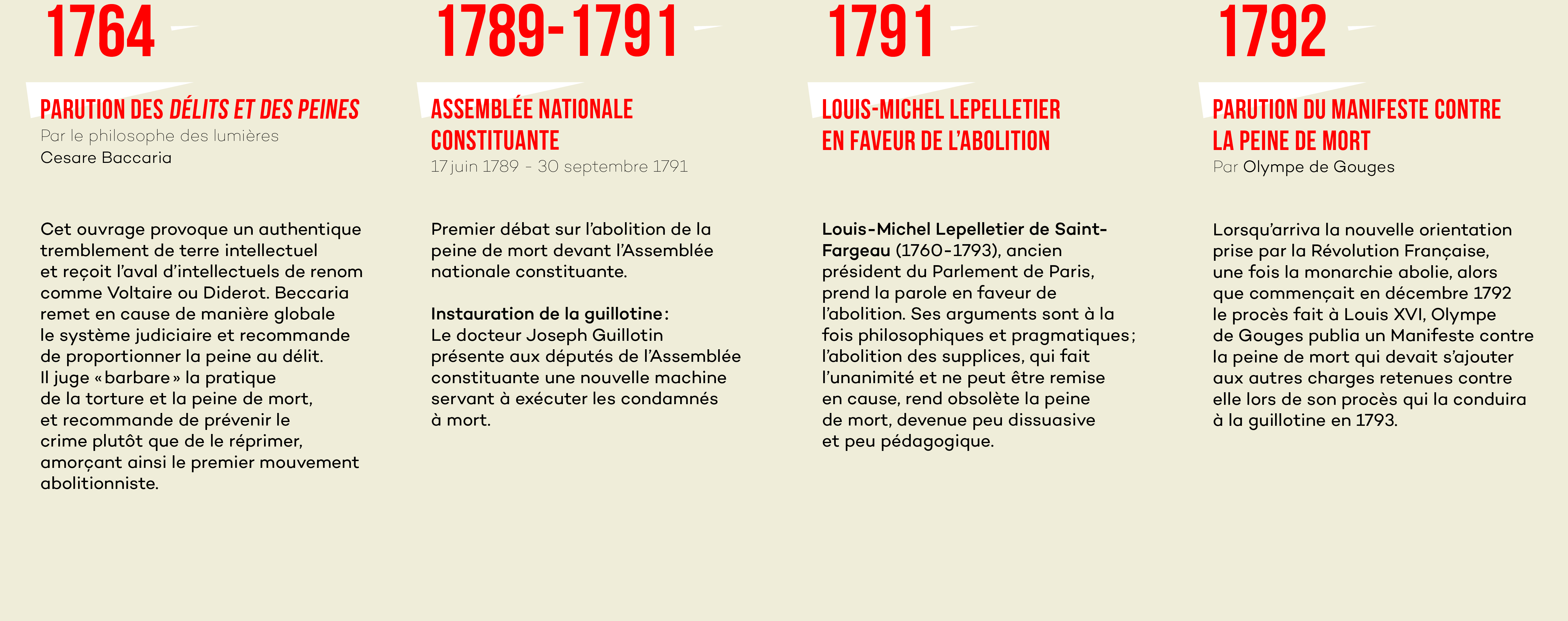
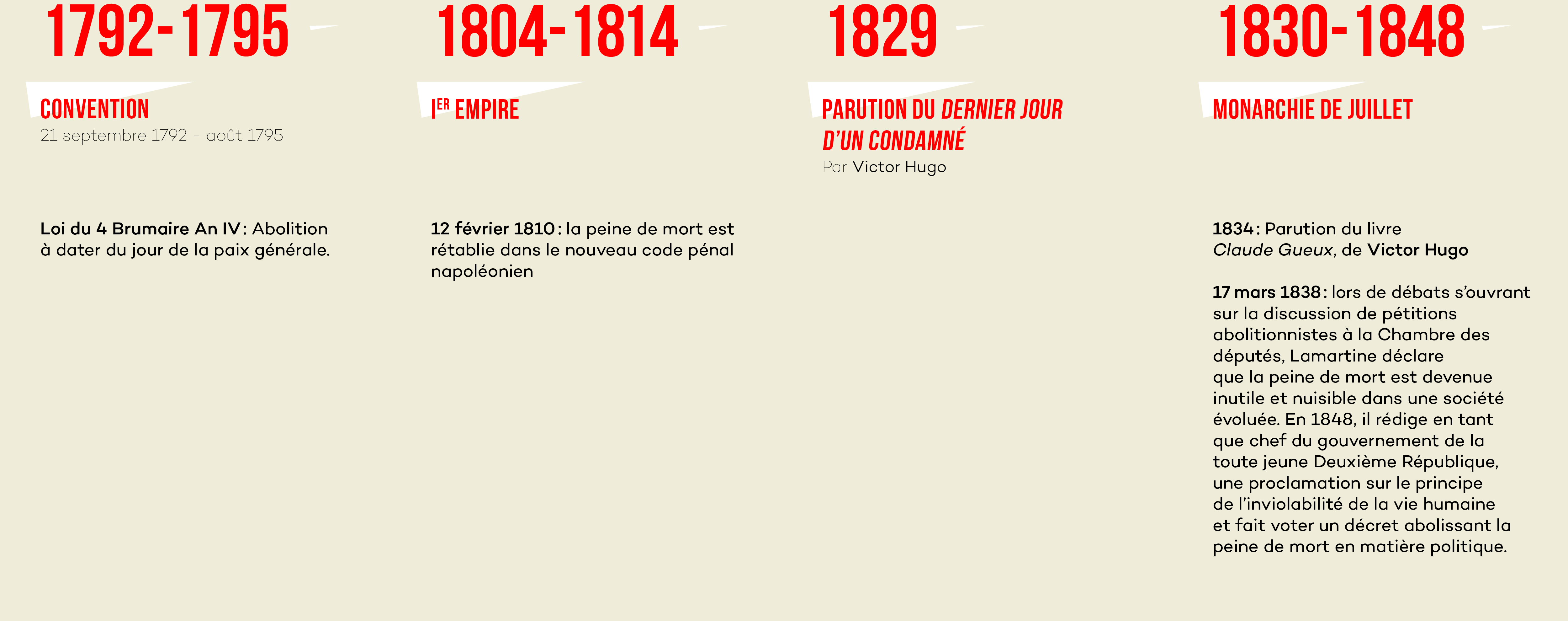
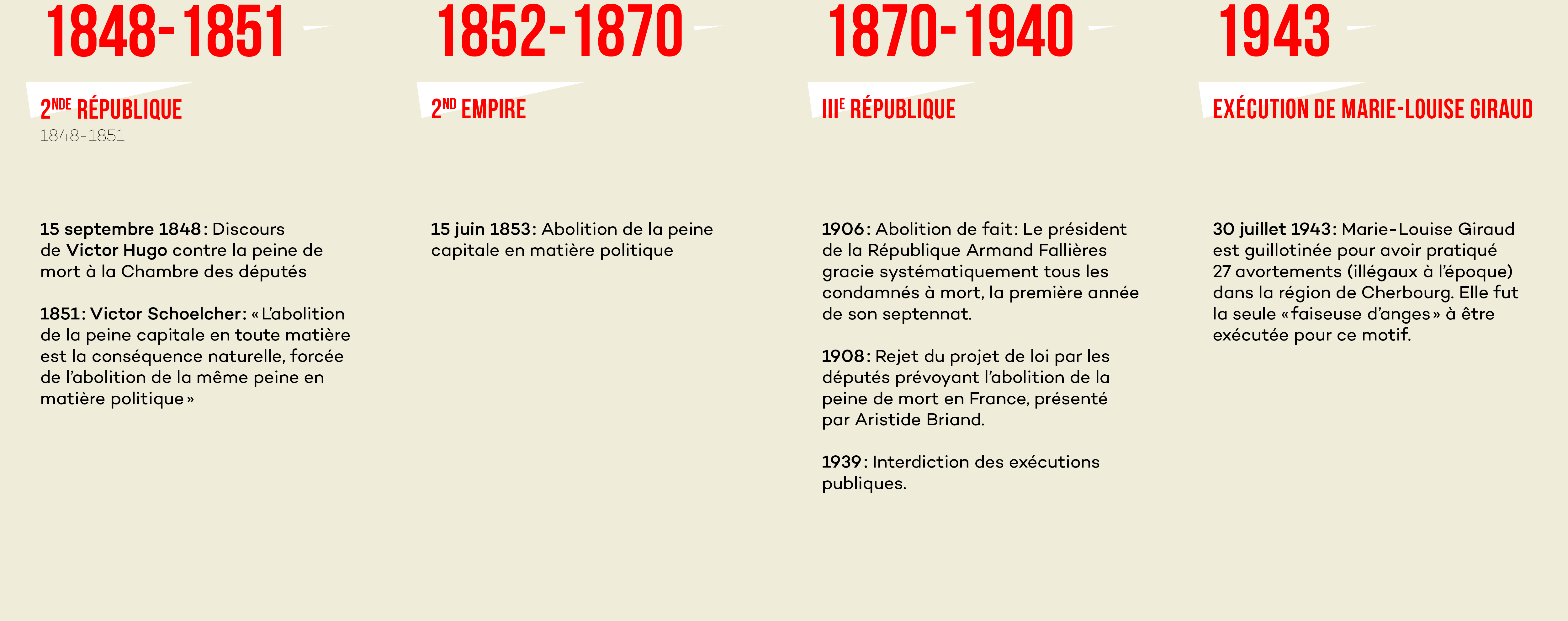
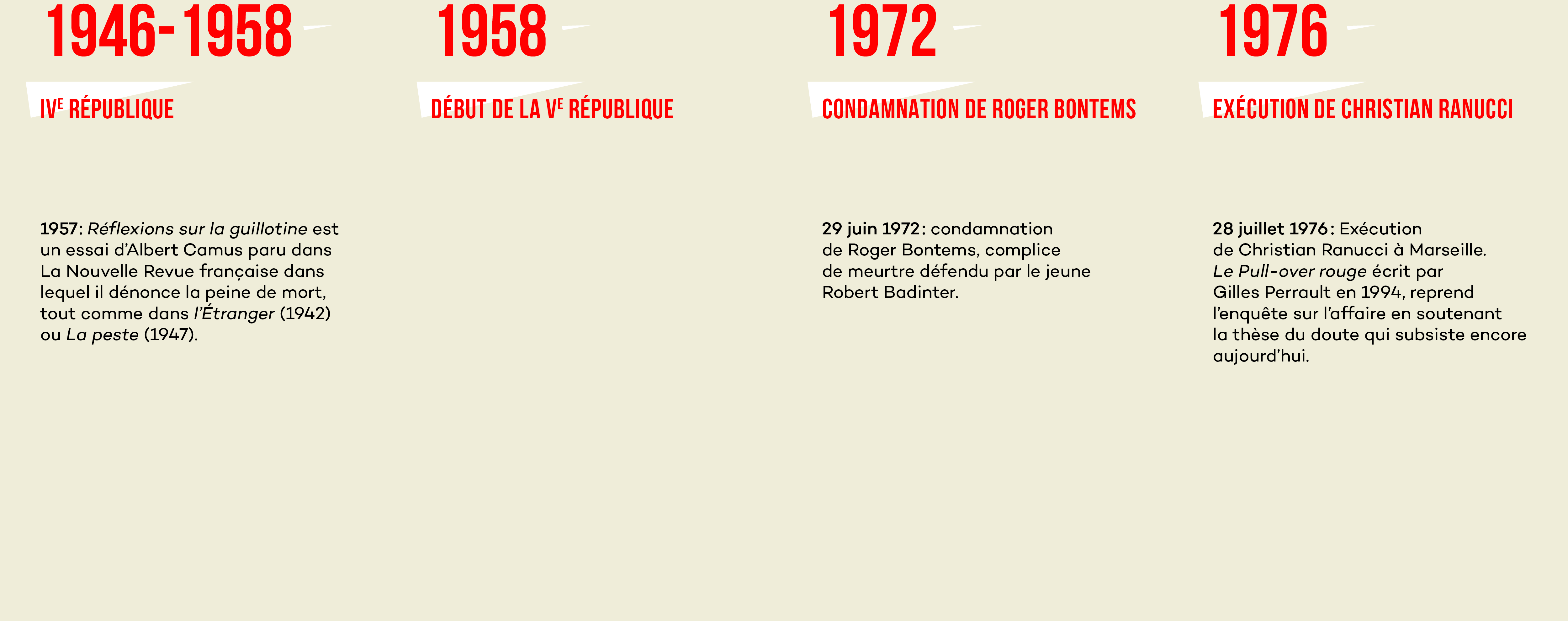
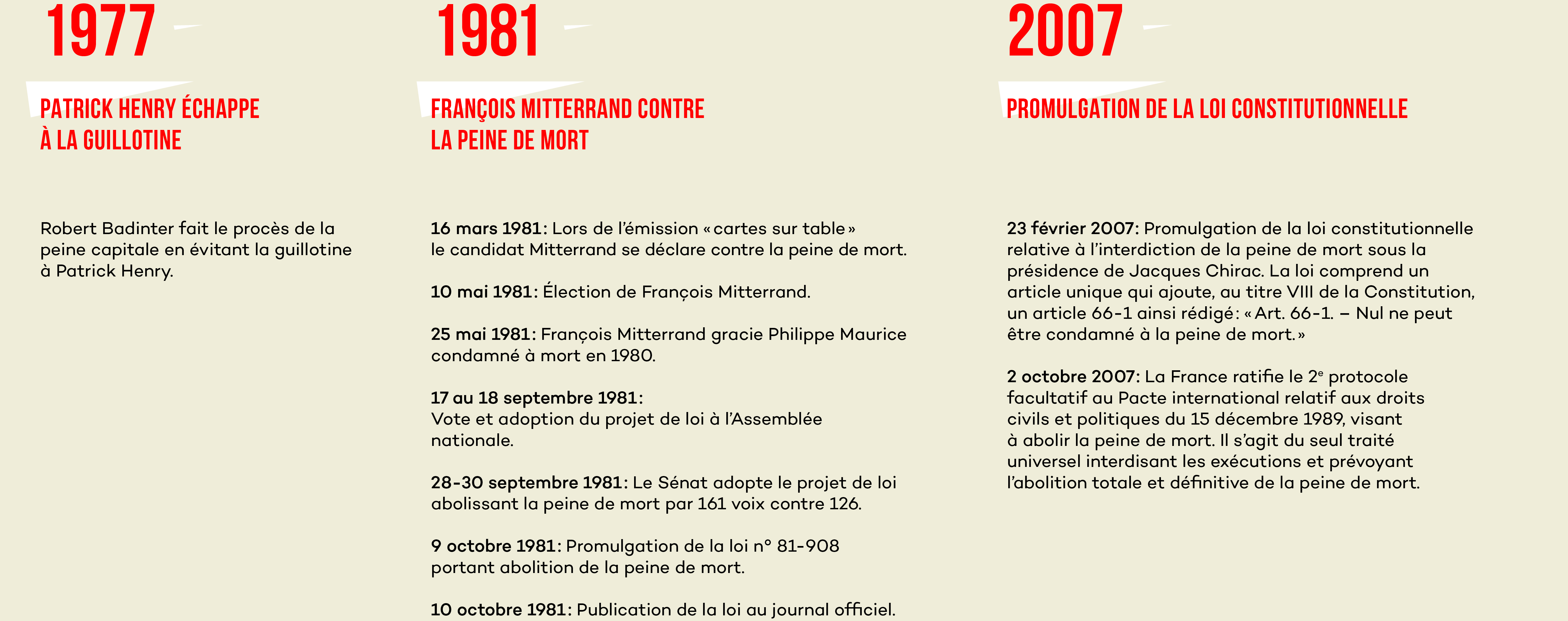
Précédent
Suivant
Aristide Briand est nommé Garde des Sceaux dans le gouvernement Clemenceau, sous la présidence d’Armand Fallières. Pour la première fois, des hommes à la tête de l’État présentent un texte pour abolir la peine capitale. Après avoir supprimé le crédit de 37 000 francs affectés à l’indemnité du bourreau, le projet de loi soumis à la Chambre est ainsi rédigé : « La peine de mort est abolie, excepté dans les cas où elle est édictée par les codes de justice militaire pour les crimes commis en temps de guerre. » Briand soutient le projet gouvernemental devant les députés. Trois types de considérations transparaissent : la légitimité de la peine de mort, l’évolution de la criminalité, le pouvoir d’intimidation de la peine capitale.
« Pour ma part, j’ai étudié la question au point de vue de l’utilité de la peine. Je me suis dit : si les chiffres de la criminalité, soit en France, soit à l’étranger, démontrent qu’il serait imprudent de supprimer la peine de mort en ce moment, s’il m’apparaît qu’elle a une puissance d’intimidation, eh bien ! je le dirai à la Chambre et je renoncerai à soutenir le projet du Gouvernement. C’est parce que, de tous les documents que j’ai consultés, il est résulté clairement pour moi que la peine de mort était inefficace, qu’elle n’était pas intimidante, comme on l’a dit, que je me suis présenté devant vous pour tâcher de vous faire participer à la conviction profonde qui s’est faite en moi. Au surplus – et je termine par là – on a traité bien légèrement le côté le plus grave du problème : la peine de mort n’est pas réparable. Oh ! je sais ! On a dit : oui, il y a bien d’autres choses qui ne sont pas réparables dans la vie ! Il y a bien d’autres cas dans lesquels des injustices irrémédiables s’accomplissent. Messieurs, ici, c’est la société qui agit. Je vous en supplie, ne la mettez pas au niveau des individus ; faites-lui jouer son rôle et prendre ses responsabilités. La société, dans le code pénal, s’est orgueilleusement attribué un droit que l’on a qualifié de divin, celui d’ôter la vie ; mais, dans le code d’instruction criminelle, successivement amendé, il lui a fallu descendre du sommet d’orgueil sur lequel l’avait fait monter le code pénal ; elle a été obligée d’avouer sa faiblesse, sa fragilité ; à côté du code qui donne la mort, il y a le code qui prévoit les erreurs, par conséquent, la faillibilité sociale[1]. »
Mais un crime épouvantable se produit avant le vote. Marthe Erbelding, 11 ans, est violée et tuée par un ami de ses parents. Ce terrible fait divers est exploité par la presse. Avant même le verdict, Le Petit Parisien prononce la sanction de l’inculpé, Albert Soleilland. La cour d’assises le condamne à la peine capitale, sous les applaudissements de la foule. Fallières gracie et commue la peine de mort en travaux forcés à perpétuité à Cayenne. Hauts cris des journalistes qui désavouent la décision présidentielle. Une campagne en faveur du châtiment suprême débute, tandis qu’à l’Assemblée les partisans de l’abolition sont en passe de faire valoir leurs intérêts. Le Petit Parisien s’empare du fait divers qu’il construit comme un événement sensationnel en le centrant sur le préconçu du ″sadique-assassin-tueur d’enfant, récidiviste, immoral et asocial″. Le Petit Journal agit de même. En outre, alliés à une fraction des magistrats, des jurys orchestrent une véritable campagne morticole. Les condamnations à mort se multiplient lors des procès d’assises. Le Matin conteste l’utilisation systématique du droit de grâce et dénonce le laxisme de l’État. Le Petit Parisien propose un « référendum » à ses lecteurs. À la question « Êtes-vous partisan de la peine de mort ? », sur un total de 1 412 347 réponses, 77 % des sondés approuvent l’application de la sanction suprême. La manœuvre journalistique fonctionne. Elle est l’une des causes du renversement du positionnement des parlementaires. À la Chambre, les députés décident de suivre la voix de leur électorat et la sanction capitale est maintenue. Sous la pression, le projet du gouvernement avorte, repoussé le 8 décembre 1908, par 330 voix contre 201. Comme le rappelle Jean-Marc Berlière, « Ce crime aura pour conséquence de repousser de trois quarts de siècle l’abolition de la peine de mort[2]. »
Marie Bardiaux-Vaïente
[1] Aristide Briand, 11 novembre 1908 (Annales de la Chambre des députés, S.E. de 1908).
[2] Jean-Marc Berlière, « 1907, La France a peur ! L’affaire Soleilland », L’Histoire, n° 323, septembre 2007.
- livre
Discours pour l’abolition de la peine de mort
Auteur : Aristide Briand
Pays : France
Genre : Discours
Date de parution : 11 novembre 1908
Lisez le discours complet sur wikipédia
« […] Pour ma part, j’ai étudié la question au point de vue de l’utilité de la peine. Je me suis dit : Si les chiffres de la criminalité, soit en France, soit à l’étranger, démontrent qu’il serait imprudent de supprimer la peine de mort en ce moment, s’il m’apparaît qu’elle a une puissance d’intimidation, eh bien ! je le dirai à la Chambre et je renoncerai à soutenir le projet du Gouvernement. C’est parce que, de tous les documents que j’ai consultés, il est résulté clairement pour moi que la peine de mort était inefficace, qu’elle n’était pas intimidante, comme on l’a dit, que je me suis présenté devant vous pour tâcher de vous faire participer à la conviction profonde qui s’est faite en moi. […] ».
- film
Aristide Briand « Pèlerin de la Paix », Série Mémoire d’Hommes
Production : G.R.A.C et Conseil Régional de la Loire
Genre : film-vidéo
Durée : 52 minutes
Sortie : 2011
Pays d’origine : France
Joe Wilson est injustement accusé de l’enlèvement d’une jeune femme. La foule, excitée par plusieurs meneurs, prend d’assaut la prison où il est enfermé.
« Sous l’autopsie des bêtises humaines se consument les innocentes vérités : les cœurs noircissent sur le bûcher d’une vindicte populaire… »
- podcast
Aristide Briand, prophète ou bateleur ?
- quiz
- pour aller plus loin
